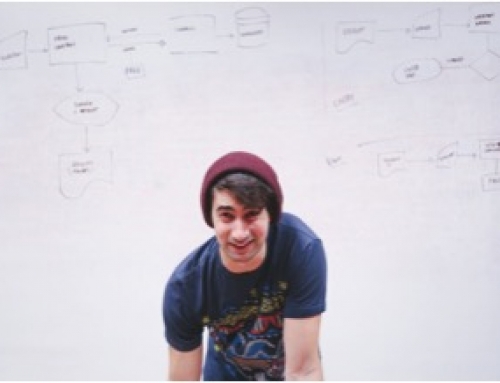WHAT DOES YOUR BUSINESS SOUND LIKE?
At Glasgow airport they play natural, ambient sounds (birds singing, plus soothing chill-out music underneath it) over the loudspeakers to relax travellers. Sales in the airport shops went up 10%.
Organizations spend millions on visual identity. But almost nothing on aural identity – what you sound like to customers. Yet sound has a massive impact on your customer experience.
Apparently two sounds that put customers’ teeth on edge are espresso machines and diesel engines, according. The latter is not surprising but the former gives you pause for thought if you are a Starbucks-look-alike and think your proposition is a relaxing place for a quiet cup of coffee…but your espresso machines are the equivalent of finger nails on a blackboard to your customers.
Gurus of the customer experience such as Shaun Smith tell us, in his most recent book – See, Feel, Think, Do – that we now need to design the customer experience for all the customer’s senses to be memorable.
You’ll also find Martin Lindstrom’s book ‘Brand Sense, Build Powerful Brands Through Touch, Taste, Smell, Sight and Sound’ useful in designing a sensaround-type immersive experience for customers. And in case you think it wouldn’t work in your business, you’re missing a trick: BMW design the ‘new car smell’ into their cars on purpose.
So, what senses will you appeal to with your memorable customer experience?
THE DEATH OF THE LAWYER (AND THE ACCOUNTANT)
Dan Pink, of A Whole New Mind fame, was noted as saying this a while ago;
“Anything that can be ‘routinised’ will be put on a microchip or in a software programme. Whether you are a lawyer or an accountant, you will be automated and you need to deploy the creative half of your brain fast to become first among equals.
“In the US an uncontested divorce will cost you $3,000 through an attorney. Or it will cost you $249 through a piece of software that runs the forms for you to fill in online.
“It’s the same with medical diagnostics or in fact anything that involves decision trees. Middle class white-collar jobs are up for grabs. Last year one million Americans had their income tax returns worked out by accountants in India. There was a big fuss about that. But no-one said anything about the 21 million Americans who filed their tax return with a $39 piece of software called QuickTax instead of going to an accountant. “
So, if the white collar professions, in the form they now exist, have had it, how do you change your customer offer to avoid being commoditised, too? What vision for the future do you need to adapt in order to keep abreast of predicted changes?
Pink suggests you contemplate and develop six new senses, he predicts that these new aptitudes will decide which organisations customers still want to do business with, and which become low-cost commodities.
Pink’s “six new senses” are, he says, specific high-concept and high-touch aptitudes that are essential in this new era:
1. Design
It’s no longer sufficient to create a product, service, experience or lifestyle that’s merely functional. Today it’s economically crucial and personally rewarding to create something that’s beautiful, whimsical or emotionally engaging.
2. Story
When our lives are brimming with information and data, it’s not enough to marshal an effective argument. Someone somewhere will inevitably track down a counterpoint to rebut your point. The essence of persuasion, communication and self-understanding has become the ability also to fashion a compelling narrative.
3. Symphony
Much of the Industrial and Information Ages required focus and specialization. But as white-collar work gets routed to Asia and reduced to software, there’s a new premium on the opposite aptitude: putting the pieces together, or symphony. What’s in greatest demand today isn’t analysis but synthesis – seeing the big picture and crossing boundaries, being able to combine disparate pieces into an arresting new whole.
4. Empathy
The capacity for logical thought is one of the things that make us human. But in a world of ubiquitous information and analytic tools, logic alone won’t do it. What will distinguish those who thrive will be their ability to understand what makes their fellow woman or man tick, to forge relationships and to care for others.
5. Play
Ample evidence points to the enormous health and professional benefits of laughter, light-heartedness, games and humour. There’s a time to be serious, of course. But too much sobriety can be bad for your career and worse for your general well-being, and for your customer relations. In the Conceptual Age, in work and in life, we all need to play.
6. Meaning
We live in a world of breathtaking material plenty. That has freed hundreds of millions of people from day-to-day struggles and liberated us to pursue more significant desires: purpose, transcendence and spiritual fulfilment.”
Dan Pink, author of a Whole New Mind, whose last real job was at the White House, writing Al Gore’s speeches, can be found here; www.danpink.com
Thoughts for the month
”Desire is the key to motivation, but it’s determination and commitment to an unrelenting pursuit of your goal – a commitment to excellence – that will enable you to attain the success you seek.”
Mario Andretti
“The only limit to your impact is your imagination and commitment.”
Anthony Robbins
I am a kind of paranoiac in reverse. I suspect people of plotting to make me happy.
J. D. Salinger
Creativity can solve almost any problem. The creative act, the defeat of habit by originality, overcomes everything.
George Lois
To live a creative life, we must lose our fear of being wrong.
Joseph Chilton Pearce




